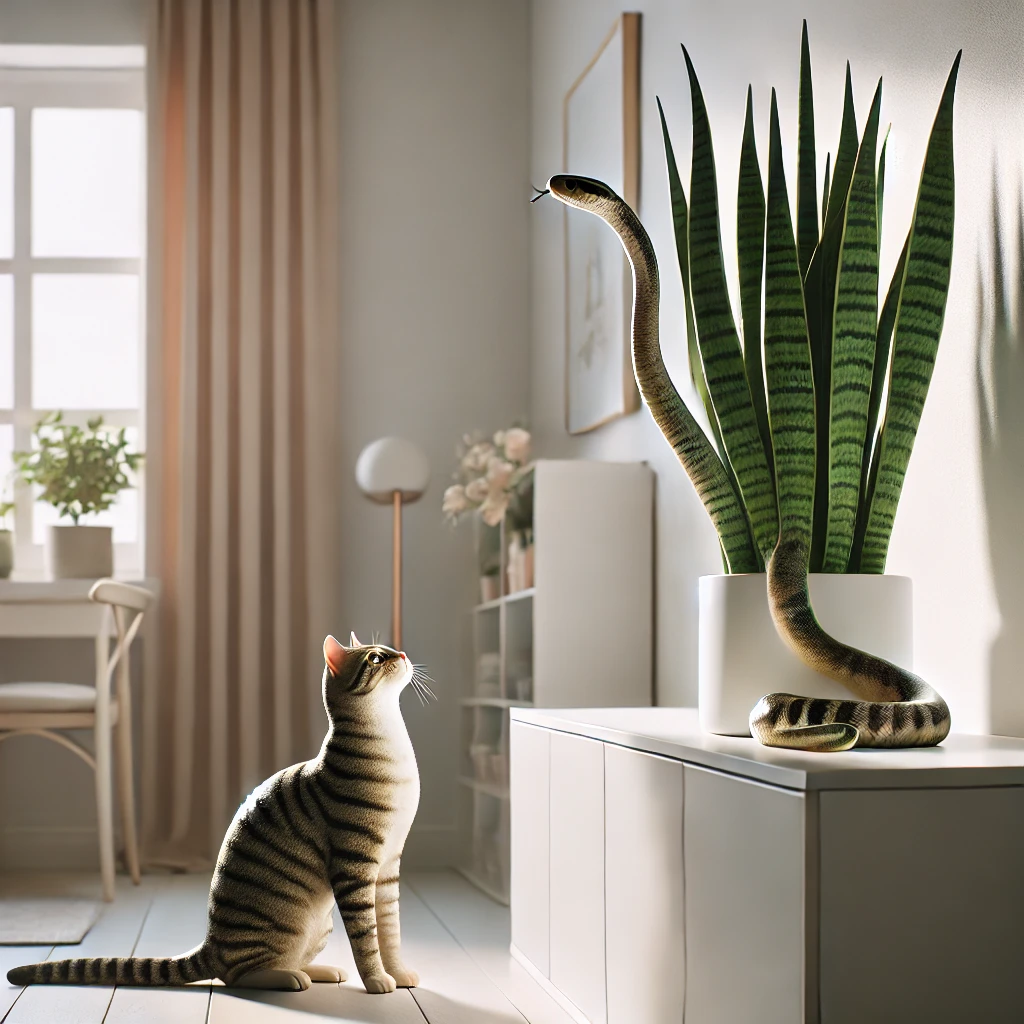Snake plants, also known as Sansevieria or mother-in-law’s tongue, are popular for their low maintenance and air-purifying qualities. However, cat owners often wonder, are snake plants toxic to cats? The answer is yes—snake plants are mildly to moderately toxic to cats due to the presence of saponins, natural chemicals that can cause discomfort when ingested.
Why Are Snake Plants Toxic to Cats?
Snake plants contain saponins, which are natural insecticides and fungicides. While beneficial to the plant, these compounds irritate the gastrointestinal tract of cats if consumed. Even a small nibble can lead to symptoms like vomiting, diarrhea, and excessive drooling.
are snake plants toxic to cats?
Yes, snake plants (Dracaena trifasciata), also known as Mother-in-Law’s Tongue, are toxic to cats. They contain saponins, compounds that can cause gastrointestinal upset if ingested by cats. Symptoms of toxicity include drooling, vomiting, diarrhea, lethargy, and oral irritation. In severe cases, it could lead to more serious health issues like dehydration or anemia. If you suspect your cat has ingested a snake plant, it’s important to contact your veterinarian or a pet poison control hotline immediately for advice and treatment options.
Here’s a suggested table to include in your content about snake plant toxicity for cats:
| Aspect | Details |
|---|---|
| Toxic Component | Saponins |
| Common Symptoms | Drooling, vomiting, diarrhea, loss of appetite, lethargy, oral irritation |
| Potential Risks | Dehydration, anemia, damage to gastrointestinal tract |
| Immediate Actions | Remove plant, monitor the cat, contact a veterinarian |
| Safe Alternatives | Spider plants, orchids, Boston ferns |
| Veterinary Help | Essential if ingestion is suspected, especially with severe symptoms |
Symptoms of Snake Plant Poisoning in Cats
If your cat ingests parts of a snake plant, monitor them for the following symptoms:
- Vomiting and nausea
- Diarrhea
- Drooling excessively
- Oral pain and irritation
- Swelling of the mouth, lips, and tongue
In rare cases, severe poisoning can cause difficulty breathing, requiring immediate veterinary care.
What to Do If Your Cat Eats a Snake Plant
If you suspect your cat has ingested snake plant material:
- Remove Plant Residue: Carefully remove any pieces from your cat’s mouth.
- Rinse the Mouth: Use water to gently cleanse any remaining toxins.
- Monitor Symptoms: Watch for signs of poisoning such as vomiting or swelling.
- Seek Veterinary Advice: Contact your vet or a poison control hotline for pets to determine the next steps.
How to Keep Cats Safe from Snake Plants
To prevent incidents:
- Place Plants Out of Reach: Keep snake plants on high shelves or inaccessible areas.
- Choose Cat-Safe Plants: Opt for non-toxic alternatives like spider plants or bamboo palms.
- Educate Household Members: Ensure everyone in your home understands the risks associated with toxic plants.
Pet-Friendly Alternatives to Snake Plants
Consider these non-toxic plants as safer options:
- Spider Plant (Chlorophytum comosum)
- Boston Fern (Nephrolepis exaltata)
- Bamboo Palm (Chamaedorea seifrizii)
FAQ: Snake Plants and Cats
1. Can snake plant poisoning be fatal to cats?
Generally, poisoning is mild to moderate, but severe cases can occur if large amounts are ingested. Seek immediate veterinary care.
2. How long do symptoms appear after ingestion?
Symptoms usually begin within a few hours, depending on the quantity ingested.
3. Should I induce vomiting in my cat?
Do not induce vomiting unless instructed by a veterinarian, as improper attempts can worsen the situation.
4. Are all parts of the snake plant toxic?
Yes, all parts contain saponins and are toxic to cats.
5. What are the best alternatives to snake plants for cat owners?
Safe choices include spider plants, Boston ferns, and bamboo palms.
Conclusion About are snake plants toxic to cats?
While snake plants can enhance home décor, they pose a risk to cats. Understanding the symptoms of poisoning and taking preventive steps ensures your pet’s safety. Opting for pet-safe plants is the best choice for households with curious cats.

